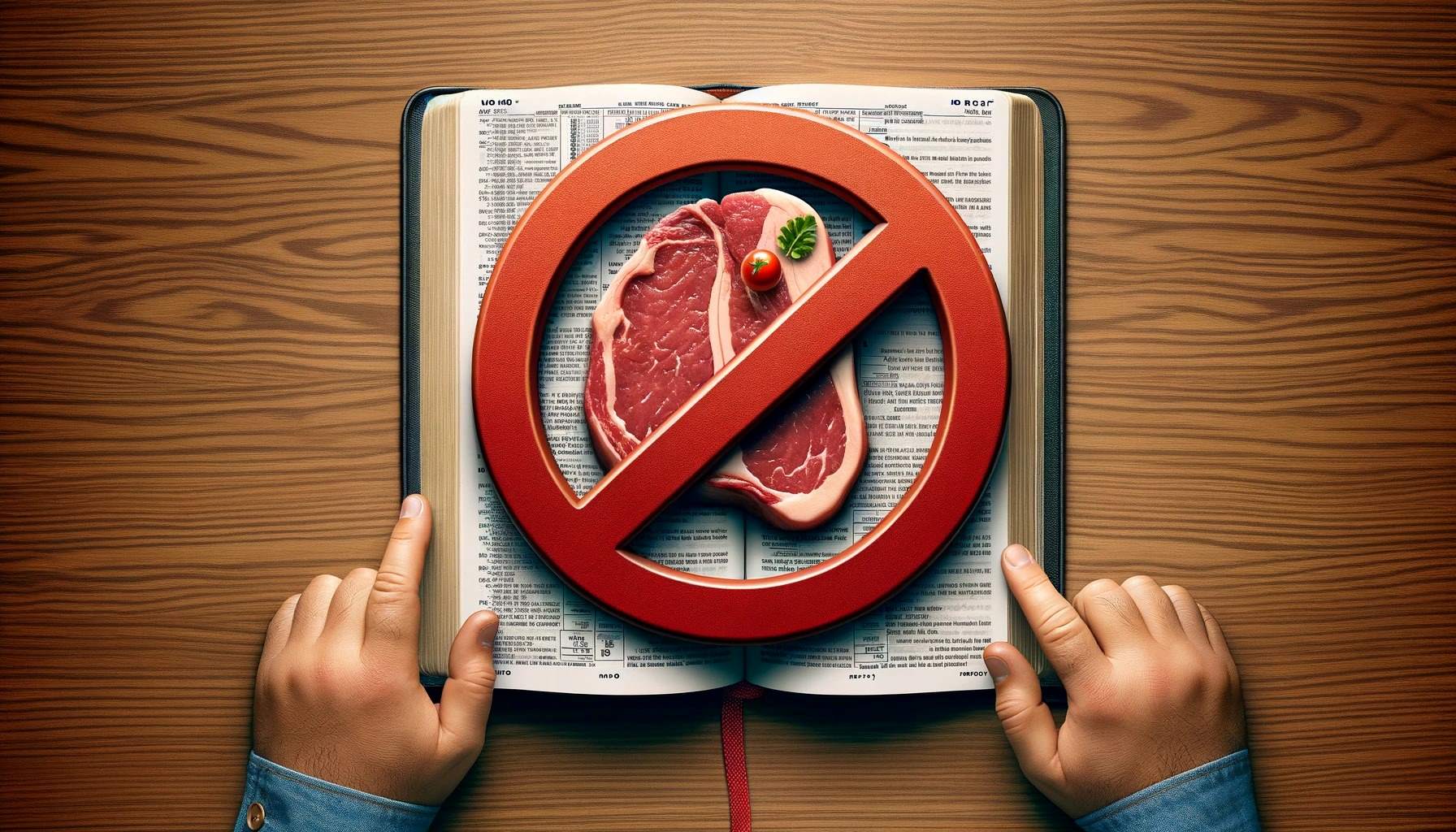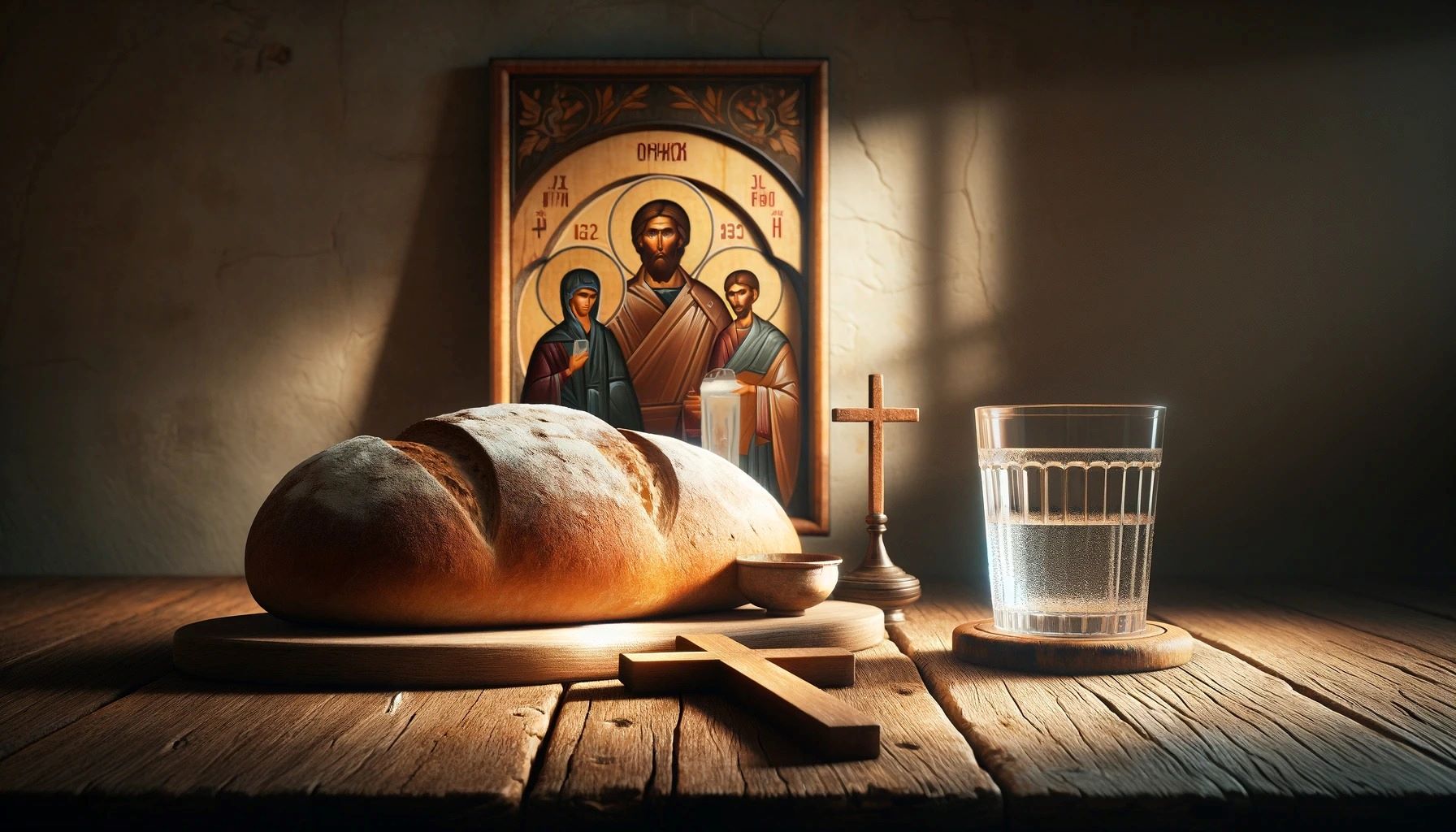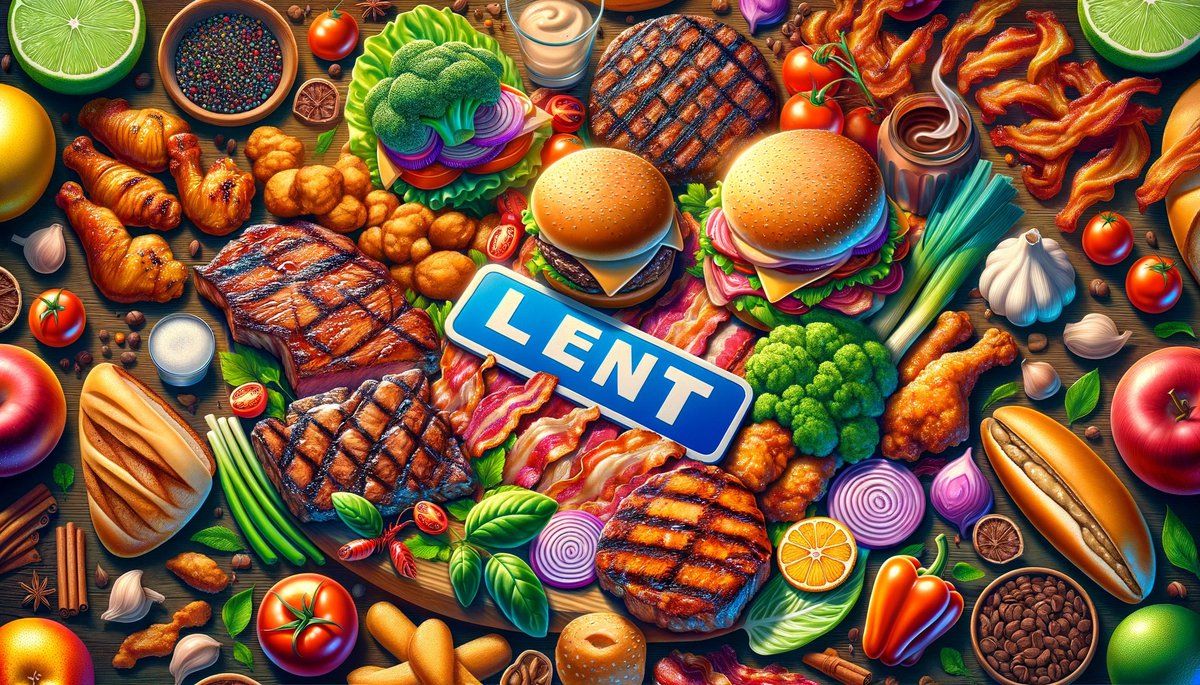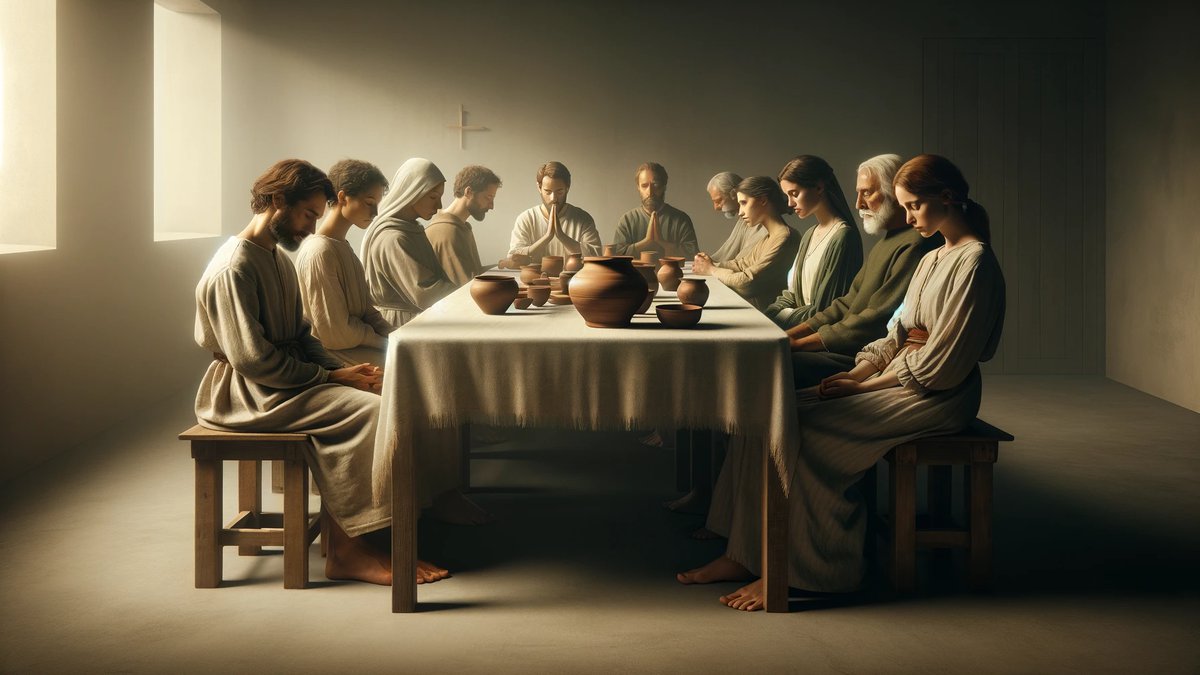Home>Special Themes>Why Don’t Catholics Eat Meat On Fridays During Lent?
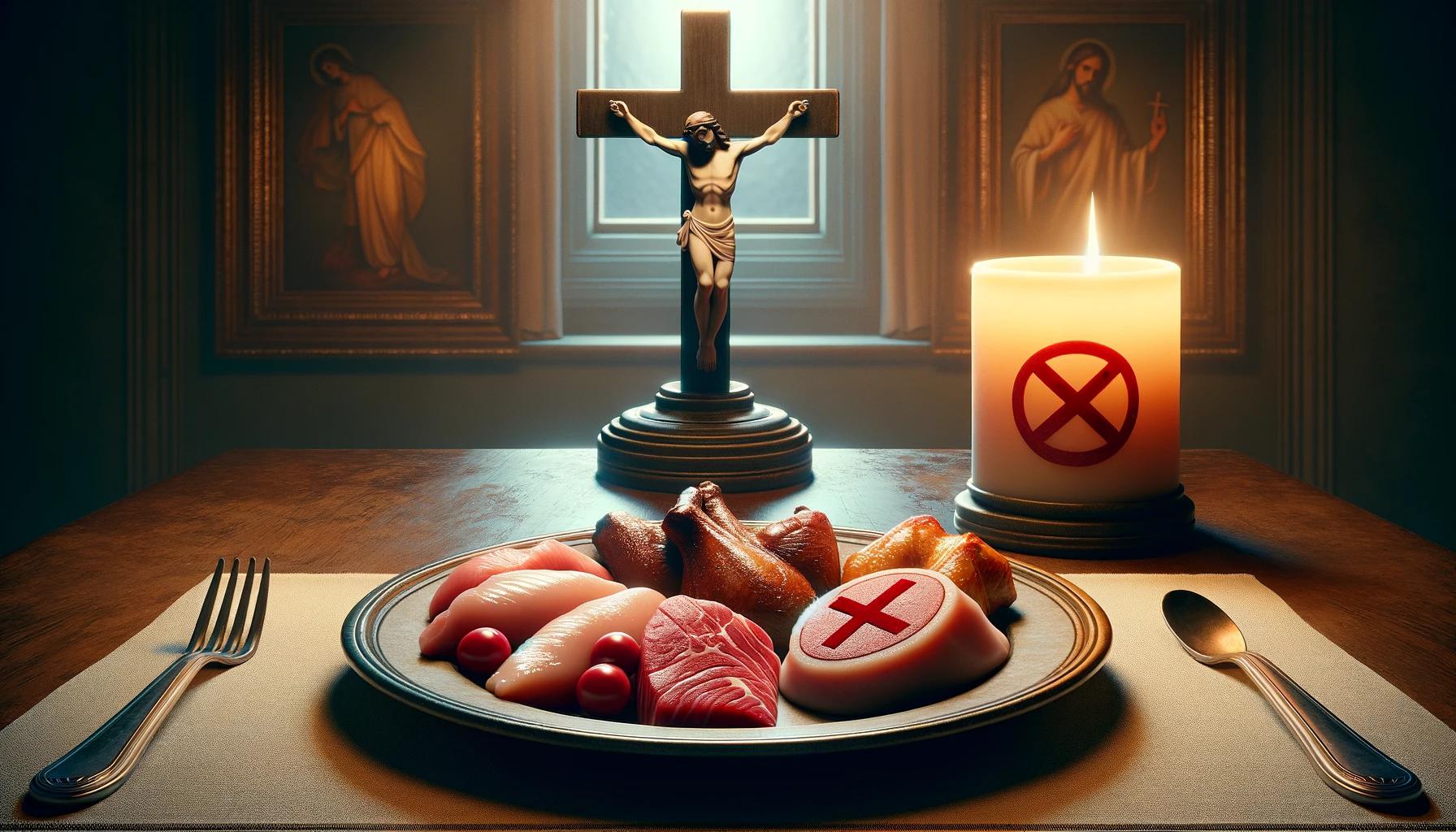

Special Themes
Why Don’t Catholics Eat Meat On Fridays During Lent?
Published: February 27, 2024
Jason DeRose, Managing Editor at Christian.net, uses his expertise in religion and journalism to deepen understanding of faith's societal impacts. His editorial leadership, coupled with a strong academic background, enriches the platform’s diverse content, earning him recognition in both journalism and religious circles.
Discover the significance of Catholics abstaining from meat on Fridays during Lent and the special themes behind this religious practice. Explore the reasons behind this tradition.
(Many of the links in this article redirect to a specific reviewed product. Your purchase of these products through affiliate links helps to generate commission for Christian.net, at no extra cost. Learn more)
Table of Contents
The History of Lent in the Catholic Church
Lent, which comes from the Anglo-Saxon word "lencten," meaning "spring," is a 40-day period of fasting, reflection, and penance leading up to Easter Sunday. The practice of Lent has been observed by Christians since the early days of the Church. Its origins can be traced back to the 2nd century, when there is evidence of a 40-day fast before Easter being practiced in the early Christian community. Over time, the duration and practices associated with Lent evolved, with the Council of Nicaea in 325 AD formalizing the 40-day period as a time of preparation for Easter. The 40 days of Lent are symbolic of Jesus' 40 days of fasting in the wilderness, as recounted in the Gospels of Matthew, Mark, and Luke. The Lenten season begins on Ash Wednesday and concludes on Holy Saturday, the day before Easter Sunday. Throughout history, Lent has been a time for Christians to engage in prayer, repentance, and self-denial as a way of preparing their hearts for the celebration of the resurrection of Jesus Christ.
The Significance of Meatless Fridays During Lent
-
Commemoration of Jesus' Sacrifice: The tradition of abstaining from meat on Fridays during Lent holds deep significance in the Catholic Church. Fridays are specifically chosen to commemorate the day of Jesus' crucifixion, and by abstaining from meat, Catholics are reminded of the sacrifice of Jesus on the cross.
-
Spiritual Discipline: The act of giving up meat on Fridays is a form of spiritual discipline. By voluntarily forgoing something as fundamental as meat, Catholics are called to reflect on the suffering of Christ and to unite their sacrifices with His ultimate sacrifice for the salvation of humanity.
-
Symbolism of Penance and Repentance: Abstaining from meat is a symbolic act of penance and repentance. It serves as a reminder of the need for self-discipline and spiritual growth during the Lenten season. By denying themselves a common pleasure, Catholics seek to turn their hearts and minds towards God and seek forgiveness for their sins.
-
Solidarity with the Poor and Hungry: In addition to its spiritual significance, abstaining from meat on Fridays during Lent also serves as a reminder of the plight of the less fortunate. By choosing simpler, meatless meals, Catholics are encouraged to empathize with the hungry and to practice charity and compassion towards those in need.
-
Fulfillment of Church Law: The requirement to abstain from meat on Fridays during Lent is a canonical obligation in the Catholic Church. It is a way for Catholics to adhere to the Church's laws and teachings, fostering a sense of communal observance and shared faith practices during the Lenten season.
By understanding the significance of meatless Fridays during Lent, Catholics are able to engage more deeply in the spiritual and communal aspects of this sacred season, fostering a greater sense of connection with the foundational beliefs of their faith.
The Spiritual and Symbolic Reasons for Abstaining from Meat
-
Commemoration of Jesus' Sacrifice: The tradition of abstaining from meat on Fridays during Lent holds deep significance in the Catholic Church. Fridays are specifically chosen to commemorate the day of Jesus' crucifixion, and by abstaining from meat, Catholics are reminded of the sacrifice of Jesus on the cross.
-
Spiritual Discipline: The act of giving up meat on Fridays is a form of spiritual discipline. By voluntarily forgoing something as fundamental as meat, Catholics are called to reflect on the suffering of Christ and to unite their sacrifices with His ultimate sacrifice for the salvation of humanity.
-
Symbolism of Penance and Repentance: Abstaining from meat is a symbolic act of penance and repentance. It serves as a reminder of the need for self-discipline and spiritual growth during the Lenten season. By denying themselves a common pleasure, Catholics seek to turn their hearts and minds towards God and seek forgiveness for their sins.
-
Solidarity with the Poor and Hungry: In addition to its spiritual significance, abstaining from meat on Fridays during Lent also serves as a reminder of the plight of the less fortunate. By choosing simpler, meatless meals, Catholics are encouraged to empathize with the hungry and to practice charity and compassion towards those in need.
-
Fulfillment of Church Law: The requirement to abstain from meat on Fridays during Lent is a canonical obligation in the Catholic Church. It is a way for Catholics to adhere to the Church's laws and teachings, fostering a sense of communal observance and shared faith practices during the Lenten season.
By understanding the significance of meatless Fridays during Lent, Catholics are able to engage more deeply in the spiritual and communal aspects of this sacred season, fostering a greater sense of connection with the foundational beliefs of their faith.
The Practice of Fasting and Abstinence in Catholic Tradition
-
Fasting: Fasting is a key component of the Lenten observance in the Catholic tradition. It involves limiting the quantity of food consumed, often by eating only one full meal and two smaller meals that, when combined, do not equal a full meal. The purpose of fasting is to experience hunger and physical discomfort as a means of spiritual discipline. By denying the body's physical needs, Catholics seek to focus on their spiritual hunger and dependence on God. This practice is rooted in the biblical accounts of fasting, such as Jesus' 40-day fast in the wilderness and the Old Testament traditions of fasting as a sign of repentance and seeking God's favor.
-
Abstinence: In addition to fasting, Catholics are called to abstain from certain foods, particularly meat, on Ash Wednesday, Good Friday, and all Fridays during Lent. The tradition of abstaining from meat has historical and symbolic significance. Meat was considered a luxury in ancient times, and by abstaining from it, Catholics are reminded of the need for simplicity and self-discipline. The act of abstaining from meat also serves as a way to express solidarity with the poor and to honor the sacrifice of Jesus Christ. The Church's laws regarding abstinence from meat are a way for Catholics to unite in a common practice of self-denial and spiritual reflection during the Lenten season.
-
Spiritual Purification: Fasting and abstinence are seen as acts of spiritual purification in the Catholic tradition. By voluntarily embracing physical discomfort and foregoing certain foods, Catholics seek to purify their hearts and minds, turning their focus towards God and the spiritual significance of the Lenten season. These practices are meant to foster a deeper sense of self-awareness, repentance, and reliance on God's grace. Through fasting and abstinence, Catholics aim to detach themselves from worldly distractions and draw closer to the divine.
-
Community and Tradition: The practice of fasting and abstinence during Lent is deeply rooted in the communal and traditional aspects of Catholic faith. By observing these disciplines together, Catholics participate in a shared experience of spiritual growth and self-discipline. The tradition of fasting and abstinence serves to connect individuals to the broader community of believers, reinforcing a sense of unity and shared commitment to the teachings of the Church. Additionally, the continuity of these practices across generations links contemporary Catholics to the rich historical and cultural heritage of their faith.
-
Personal Reflection and Renewal: Fasting and abstinence provide Catholics with an opportunity for personal reflection and renewal. By engaging in these disciplines, individuals are encouraged to examine their lives, seek forgiveness for their shortcomings, and recommit themselves to living in accordance with the values of their faith. The Lenten season, with its emphasis on fasting and abstinence, becomes a time of spiritual introspection and renewal, preparing Catholics to celebrate the joy of Easter and the resurrection of Jesus Christ.
In summary, the practice of fasting and abstinence in the Catholic tradition is a multifaceted expression of faith, encompassing spiritual discipline, communal solidarity, and personal renewal. These practices serve as tangible reminders of the central themes of Lent – repentance, sacrifice, and the anticipation of spiritual rebirth.
The Exceptions and Alternatives for Meatless Fridays During Lent
-
Dispensation from the Obligation: In certain circumstances, the Church may grant a dispensation from the obligation to abstain from meat on Fridays during Lent. This dispensation can be given by a bishop or by specific provisions made by the Church for particular celebrations or events. The purpose of dispensation is to accommodate individuals who may have legitimate reasons for not being able to observe the traditional practice of abstinence. This could include individuals with health concerns, those engaged in strenuous physical labor, or those for whom abstaining from meat would pose a significant hardship.
-
Substitution with Other Forms of Penance: While abstaining from meat is the traditional practice for Fridays during Lent, the Church also allows for the substitution of other forms of penance or acts of charity. This could include engaging in additional prayers, attending a Lenten service, volunteering for charitable work, or making a financial donation to a charitable cause. The key principle is to replace the act of abstaining from meat with an alternative form of spiritual discipline or acts of mercy that align with the spirit of Lent.
-
Choosing Simple and Frugal Meals: For those who are unable to abstain from meat due to specific circumstances or dispensations, the Church encourages the choice of simple and frugal meals on Fridays during Lent. This could involve opting for meatless alternatives, such as fish, seafood, or vegetarian dishes, as a way of maintaining a spirit of penance and self-denial. The emphasis is on embracing a simpler and more reflective approach to meals, even if complete abstinence from meat is not possible.
-
Cultural and Regional Variations: It's important to recognize that the specific traditions and practices related to meatless Fridays during Lent may vary across different cultures and regions within the Catholic Church. While the general rule of abstaining from meat is upheld, there may be cultural or regional variations in the types of foods that are traditionally consumed on Fridays during Lent. These variations reflect the diverse cultural expressions within the universal Church and demonstrate the adaptability of the Lenten observance to different contexts.
-
Educational and Pastoral Guidance: The Church provides educational and pastoral guidance to help individuals understand the significance of meatless Fridays during Lent and to navigate any exceptions or alternatives that may apply to their specific circumstances. This guidance may come in the form of pastoral letters, educational materials, or instructions from local dioceses and parishes. By providing clear and accessible information, the Church seeks to ensure that individuals are able to observe the Lenten practices in a manner that is both spiritually meaningful and practical for their individual situations.
In summary, while the tradition of abstaining from meat on Fridays during Lent is a longstanding practice in the Catholic Church, there are provisions for exceptions and alternatives that allow individuals to observe the spirit of penance and self-denial in ways that are consistent with their particular needs and circumstances. These provisions reflect the Church's pastoral concern for the spiritual well-being of its members and the recognition of the diverse challenges and contexts in which the Lenten observance takes place.
